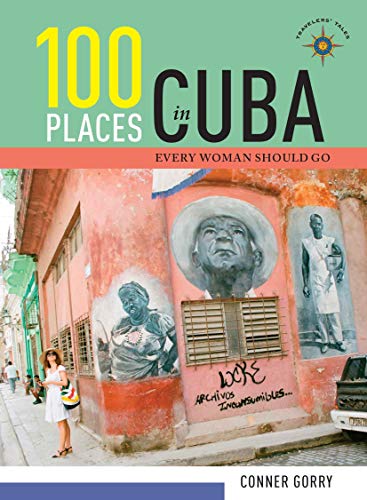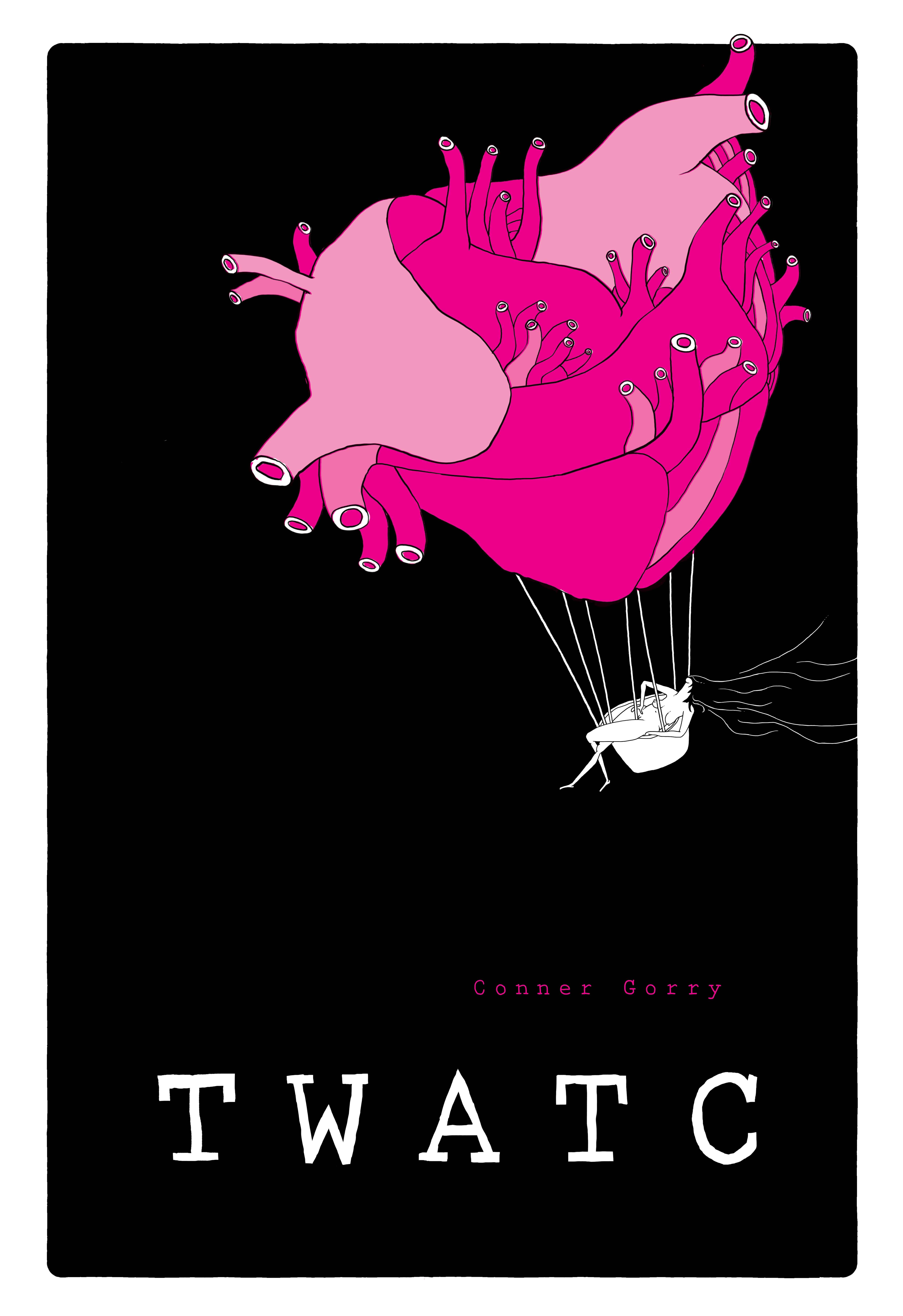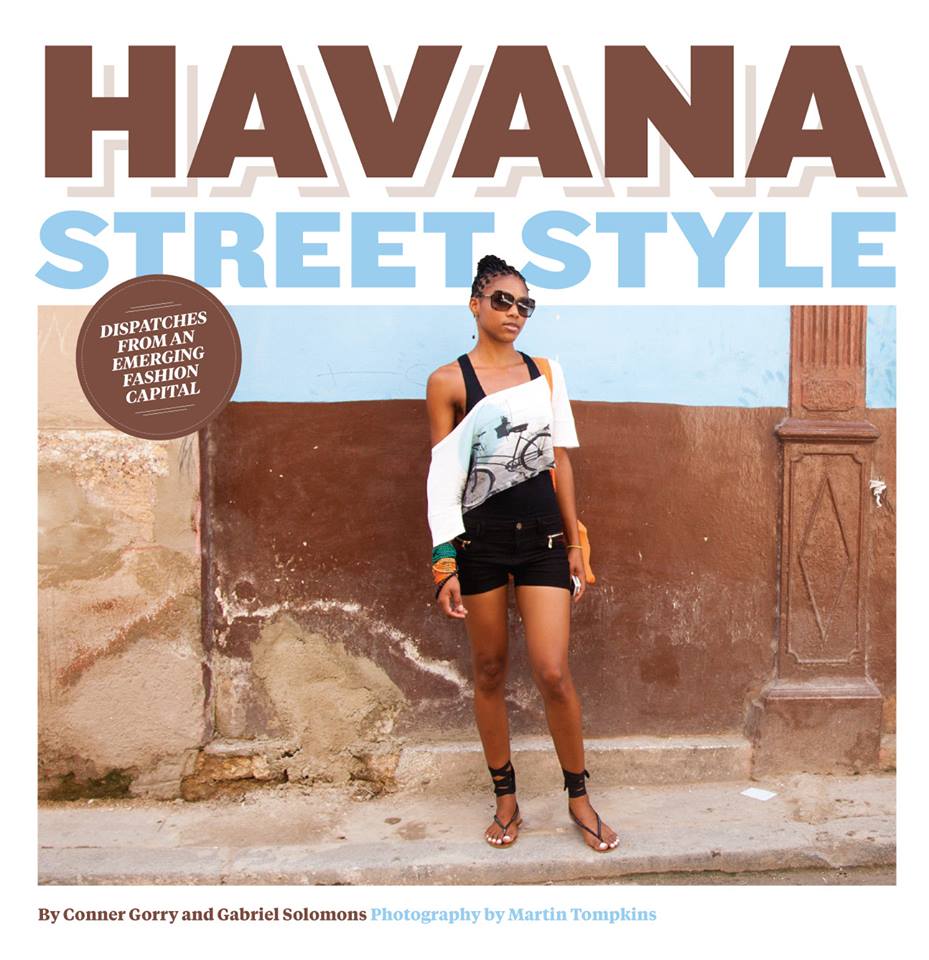[tweetmeme source=”connergo” only_single=false]
Havana is hot and I’m not talking about mulatas or the weather: from Cayo Hueso to Regla, Cementerio Colón to Ciudad Deportiva, you can’t swing a dead gato around here these days without hitting a tourist. To tell you the truth, I don’t think I’ve seen this many foreigners in Havana since the 2006 Non-Aligned Meeting (see note 1).
There are reasons of course. The Cigar and Young Filmmakers Festivals are going strong as I write this, we’re getting a couple of monster cruise ships docking each week, and all-inclusive packages from Canada are mad cheap (see note 2). But most importantly, Havana’s streets teem thanks to Obama’s rollback to Clinton’s policy whereby US college students and select others can travel “legally” to the island. I’m surprised the effects have been so lightening fast – the new/old regulations were just announced in January – but everywhere I turn these days there seems to be a fresh-faced co-ed in Wesleyan gear or a Teva-shod geek. I hope they all have iPads.
Many of these people won’t end up liking Havana (hell, even I don’t like Havana some times). Starting with poor air quality, negative travelogues grouse about the expense of this place; perceived levels of state control; difficulties scratching below the surface +/o contextualizing their experience; and of course, crappy goods and even shittier services.
The dramatic economic changes happening around here – legalizing 178 types of private business from clown to cook, masseur to manicurist – are altering the travelers landscape (see note 3). So that Here is Havana readers can maximize their visit to this enigmatic city, I dedicate this post to travel strategies designed to get you beneath Havana’s skin.
#1. Talk the talk. There is no better way to maximize an independent holiday here than to speak cubano, with all its chopped off words, odd pronunciation and slang (see note 4). Even if ¿que bola asere? and ‘la heva está enpinga’ isn’t in your repertoire, try at least to dust off that high school Spanish since surprisingly few Cubans dominate English (and many of those that do are unusually accomplished charlatans). Not speaking Spanish doesn’t mean you’ll have a bad time – on the contrary. But it will limit your ability to get information, negotiate, learn and arrange logistics.
#2. Embrace pesos cubanos. As soon as you’re able, get some moneda nacional, also known as pesos cubanos and CUP. There’s a myth out there as tenacious as herpes in a whorehouse and which no amount of posting, commenting, and conversing seems to dispel: that tourists can’t use this ‘local’ currency. Complete rubbish. The truth is, most visitors simply don’t know how to use CUP. I suggest starting your trip by changing $5 of hard currency (24 CUP = 1 CUC = 0.82 USD) into this funny money to use for fixed route taxis, movies, food, condoms, cigars, and stepping out.
#3. Roll like a local. Long-finned Pontiacs, Capone-era Dodges, and other ‘Yank tanks’ leap to most minds when Cuba is mentioned. Undeniably cliché, these cars are everywhere, plying Havana’s streets working as communal, fixed-route taxis. For 10 pesos cubanos (about 0.40 USD), you can hail one of these endearing jalopies (I climbed into one yesterday that had packing tape upholstery and a ceiling lined with old refrigerator boxes) between Playa and Vedado or Habana Vieja, out to Miramar or Marianao. Longer routes – from Habana Vieja out to the Playas del Este beaches for example – will run double. To grab one, just stick out your arm parallel to the ground and ask the driver if he’s going to where you need to be. It helps to be on the right thoroughfare: 23 or Línea in Vedado, San Lázaro or Neptuno in Centro Habana, Avenida 31 or 41 in Playa, Calle 51 in Marianao, or 3ra Avenida in Miramar.
Even lower down on the transportation food chain is the guagua (pronounced wa-wa) – the Cuban bus. A ride literally costs pennies and while not especially comfortable or efficient, riding the guagua gives a real taste of Cuban daily life with all its attendant humor and hardships.
If these options don’t appeal, consider renting a car and driver. Part of the new regulations stipulate that licensed freelance drivers can now be contracted (by anyone, including foreigners as I understand it) to provide transport islandwide. There are no set fares, with rates to be determined between driver and client. Already nearly 6,000 choferes in Havana have applied for the freelance license; 2,000 have been granted. If the market has its way, the increased competition should make for more bargaining power and improved service. At the very least, it provides visitors an alternative to renting a car for $100 a day (which will somehow end up costing more when the agency is done with you). I predict that freelance drivers who speak English are going to do very well under these new regulations.
#4. Make yourself at home. One of the great benefits presented by the new regulations for travelers is the possibility to legally rent an entire house. This means you can shop at the agro (using those pesos cubanos) and cook for yourself, throw a dinner party, or introduce Cuban friends to the concept of brunch. Having your own private space means you can channel surf Cuban state TV (University for All! Little House on the Prairie! Seinfeld!), take mojitos on your porch to the delight of the neighborhood gossips, or stumble in carefree at 4am.
Another idea for a different Havana experience is to take lodging in more off-the-beaten-track places like the beach towns of Guanabo or Baracoa or Cojimar – the fishing village made famous by Hemingway’s Old Man and the Sea. These are close enough to enjoy Havana but just far enough removed to give a taste of small town life.
#5. Get primped & pampered. The new regulations approve all sorts of services which visitors can now enjoy without any sneaking around. Now your visit can include a 1-hr massage for $20 (really $10, but you might be charged double – the foreigner tax digamos), manicures for $2, and haircuts for $5 (careful with this last however).
If you’re interested to learn if someone – driver, masseuse, pizza maker – proffering these and other goods and services is licensed to do so, ask to see their licencia de cuenta propista. Most people are proud to flash their spiffy new ID cards.
#6. Spread the wealth. Frankly I weary of travelers asking me how they can avoid patronizing state businesses. That’s like asking how to avoid death or taxes. From the moment you buy your $20 tourist card to enter the country, to the minute you’re paying the $25 tax to leave, you’re supporting the Cuban government. What’s so evolved about this place is that paying into government coffers does in turn support the Cuban people (maybe not how or to the extent you’d like, but in my book the Cuban approach is fundamentally better than subsidizing bombs in Afghanistan and spies in Caracas). If you have a problem with this, do us all a favor and go to Cancun.
Having said that, I do recommend spending your hard-earned cash at a mix of state and private enterprises, but how to tell the difference? With eateries, there are some telltale signs. If your server is wearing a uniform or hairnet the place is probably state-owned. If your food descends from a balcony in a bucket it’s definitely private.
With taxis it’s even clearer: 99% of the old Motor City monsters (and many of the Ladas) brandishing taxi signs are privately owned. When in doubt, do like the Cubans do and look at the license plate (see note 5). There’s an entire code for plates here, with the first clue being the color: blue is for state-owned, yellow is private. All hotels, meanwhile, are at least 51% state-owned, but casas particulares (rooms or independent houses for rent) are privately operated. Look for the blue ‘arrendador divisa‘ sign.
If you’re interested in learning more of the Havana ‘mécanica‘ including bus and fixed-fare taxi routes, the best spot for 75 cent whisky shots and $1 lunch, Cuban line etiquette and more, please check out my iapp Havana Good Time.
Notes
1. It’s highly doubtful we’ll reap the same benefits however: when Cuba hosted the meeting as is customary for the country holding the rotating presidency, Havana’s main roads were repaved, trees were planted (including many of the trees lining Boyeros every visitor zooms by on their way from the airport) and house facades all along the arrival route were painted up nice and spiffy for the visiting delegations.
2. These 7-day all inclusive deals are oftentimes cheaper than just a Toronto-Havana Cubana flight. Savvy travelers just book the package and stay a day or two at their resort and then travel independently. As an aside, tourism figures for January indicate a 16% increase for the same period last year. Top countries visiting Cuba: Canada, Italy, Germany, France, Russia, Argentina, and Mexico.
3. I say travelers here instead of tourists because I believe there is a fundamental difference between a person who passively observes a culture and someone who desires to actively participate in it. If you’re one of those disposed to take issue with the tourist vs traveler terminology, I invite you to focus on the phenomenon/philosophy I’m talking about rather than the etymology of the terms used to describe it.
4. Those interested in Cuban slang and phrases should check out this Dichos iapp. I haven’t been able to get it yet (the US government blocks iTunes from operating in Cuba) but am loca to try it.
5. This national reflex is widespread and wild to watch: no matter what type of car you’re in, observe how passing Cubans immediately drop their eyes to check out the license plate. Via the coded plates, they’ll know if your car is from Havana or the provinces, whether you’re a foreign resident or visiting, even if you work for the state, a mixed Cuban-foreign enterprise, a church or an NGO.














As always Conner a great look at Cuban travel. It always seems a paradox that the Cubans speak so little English (at least, as you point out, the ones you want to talk to) and seem not to want to learn more even though so much of the tourist dollar will be speaking English. But then if you think about the Cuban revolutionaries, throwing off the mantle of imperialism from the North, why would they then want to study our language? In any case, your suggestion to get some Spanish is perfect- I can not imagine trying to travel in Cuba without it.
thanks for writing in Dan – and thanks for spelling my name right!
Hi Dan,it is a paradox that Cubans speak so little English as you say,especially when they boast education and diversity in learning is free and available to everyone.I was surprised of the low level of knowledge of basic/common subjects in my interactions and conversations with men and women in good government office jobs,they didn’t seem to be able to hold an intelligent and mature discussion,with the exception of one journalist (a lady) who happened to be the owner of my”casa”
Good point: although English language is required in school from age 11 on, it’s Cubans teaching Cubans and so is far from ideal/correct/engaging to students. I can’t tell you how many friends of mine have had more than 6 years of formal English language instruction but cant speak a word. On the upside, Ive seen many more Cubans speaking (good) English over the decade Ive been here and there are more all the time. Lots of this is driven by the increase English-language tourism
Conner-
Have you seen the news that Raul has unleashed 1000 new posters upon the Internet to do whatever Government posters Do.
Perhaps there exists a new career for you, since for all your moaning you seem intent to stay there?
Or are you already on board?
Well, funny you should ask…..no, Im not one of the new bloggers, but several people close to me are. We’ve talked about it – it’s a steep learning curve and a slow process, but these folks will be a force to reckon with once the maquina está engrasada.
One thing they still don’t quite get (judging from the people I talked to) is the importance of having these blogs in ENGLISH. Just making the info available in Spanish is limiting obviously, but also tends to preach to the converted. The foreigner outfits and individuals who have been able to make Cuban writing available in English are doing well, but Id like to see the Cubans taking the reins. Vamos a ver!
Conner:
Much enjoyed reading about all the ins and outs of travel in Cuba. Nothing better than to learn these “details” from an insider. Let’s hope more Americans get the opportunity to go to Cuba in the not too distance future.
Amen sister! (50% of all iDevice users are in USA which is part of the reason my sales of Havana Good Time iapp sales are so slow)
happy expatting!
I think you will have some coming from Australia very soon querida!
Quick follow up: I always like to get a mix of impressions of a place: the insider view is logically different from someone who drops in for a week or two. Check out this blog by a young north american woman who didn’t enjoy Cuba all that much. The comments give an idea of the range of experiences here:
A Little Confesstion….Cuba Gets an “ish” ftom Me
great column: informative, insightful and delightfully castigating
Hey thanks!! (the least I can do is be “delightful” while Im castigating!)
It’s always nice to count another yuma among the reader ranks….and a Canucklehead to boot!
(this is a joke: I’ve always wanted to be Canadian. Just seems easier)
Great tips Conner thanks! I’m getting so excited about my trip (and downloading the iPhone apps now)!
Groovy! That means version 2.0 will be free for you (coming out soon!)
Let me know when you have final dates….
What a truely deadful article (and so error ridden).
Not yours Conner – the one you provided a link to!
A Little Confesstion….Cuba Gets an “ish” ftom Me
Well, you can’t believe eveything you read right?!
As I always say: come to Cuba yourself and draw your own conclusions.
(not you J – I know you have heaps of experience and conclusions!)
Just discovered your blog through travel writer Robin Esrock and am loving it. I can’t wait to go back and read from the start. Keep up the good work!
Thanks Luci! You’ve made my Sunday. Some days it’s really really hard to even keep up the work, let alone anything “good.” Comments like yours put gas in my tank to keep on keepin on.
By the way folks, Robin Esrock, host/brain child of the Word Travels television program (“international television personality” acc to Wikipedia!) came to Havana to film me for the new Breaking Free TV show. While it seems neither Robin nor I will actually make it onto the small screen for Breaking Free, I gotta tell you I had a helluva time showing this guy around Havana. Making TV is terribly dull and often the people who make it too, but this guy is down to earth, smart, funny, curious and probably better traveled than all of us put together. Check him out!
Pingback: Sensing Havana | Here is Havana
$5 for a haircut? Mine here in Santiago costs 2CUP, although I pay the barber 20CUP. Are you sure that extranjeros in Havana can use the boteros? I did not think that they were licensed to take tourists. Keep up the blogging
There are several factors at work here I think: first, women’s cuts are always more expensive, anywhere in the world. Also, Havana is the most expensive city on the island. $5 IS on the high side I admit (current prices at newly privatized salons start at 50 CUP, state salons are closer to 10, but 2? unheard of!) but this salon, as you’ll glean from the description, is among the top private places here. Or was. This description is over a year old already and well, times they are a-changin’
As I said, my understanding is that yes, legal cuenta propista (freelance) taxi drivers can take foreign fares. But keep in mind, this is the equivalent of frontier times here: many regulations and even laws were placed immediately in conflict with the issuance of the lineamientos (new economic regs) and these sticky but very real issues have to be worked out, which will happen over time. Loopholes will close up, things will continue to evolve and change.
I took several local taxis in Havana in February- they all seemed to stop without hesitation and all accepted my $$. Travelers should know that they run set routes and NOT wherever you want to go, so it can be a challenge to get to the end of the route and try to figure out where the next taxi will be taking you…. the set fees seemed to range between 10 and 20 CUP.
That’s what Havana Good Time is for: fixed taxi routes, bus maps, and more! One leg via a fixed-route taxi (eg Marianao to Vedado) is 10 pesos cubanos (CUP), 2 legs (eg Marianao-Vedado-Havana Vieja) is 20. Prices sometimes go up at night.
Happy travels!
Hiya Conner!
Just got back from Havana last night and had a great time, although I do kinda wish I’d read your post before going! Nonetheless I enjoyed my experiences, despite paying for them all in CUCs. It was expensive, but I knew that going in and was ok with it. I spent 12 days there, with the main part being a bicycle tour with GAP Adventures that was mostly in Pinar del Rio, centred around Vinales & Saroa. We stayed in hotels, so it definitely wasn’t an “authentic” experience but nonetheless, I felt like I learned a lot, even if it barely scratched the surface. I want to go back and take my mum & dad, as they’d really enjoy the architecture in Havana and the orchid garden in Saroa, among other things. I will work on my Spanish, though, as it definitely would have helped! My tour group consisted of 5 Aussies, 1 Brit, 3 Canadians (2 from Toronto, including me, and one from Montreal), 2 Danes, 2 Norwegians, and 2 from a country that shall remain nameless to protect the innocent :), and we all had a great time. I felt so lucky that I only have to take a direct 3.5 hour flight, and I don’t even have to change time zones! I figure with it being that convenient, I can come back for long weekends every once in a while, if I can get lucky with some airline seat sales. I did have your app and found it a good counter to the Moon guide; I’ll check out the update and write a (positive) review for you on the iTunes site.
(For anyone else who might be reading and wondering, Cuba is a perfectly safe place for a single (blonde) female to travel; yeah, you get a little more attention than you might want, but it’s a minor annoyance and not at all threatening.)
Next time I go, I’d like to take you out for drinks or dinner if you’re not on deadline!
Cheers,
Jen
Hola Jen!! Thanks for checking in. Sounds like you had an awesome time! And what’s this about not having an “authentic” experience bc you stayed in hotels?! That’s a whole lot o’ hooey: I bet peddling around cuba on a bike, you had a more authentic experience than many, if not most.
You are VERY lucky to have that 3.5hr direct flight option. Oh, were it possible!!! I envy you. Yes, improve your Spanish, come back, tell your family and friends about this wonderful place!!
Happy Travels
PS – loving all the app review love! keep it comin’ ya’ll.
Conner
Perhaps you should advice travelers of the lack of human rights and civil rights to cubans where cuba’s regime penalizes discrepancy with goberment and prosperity of their people.
And Higher Education is free as long as you are part of the communist party
Cuba is NOT the picture perfect country that you describe, not to their citizens anyway. Cuban’s are 3rd class citizens in their own country. Perhaps you will right about this one of this days.
Maria: Thanks for stopping by, but Here is Havana isn’t the blog for you. Nevertheless, let me point out: I have never, ever, not here, not in MEDICC Review, not in presentations, panels, lectures and the voluminous writing on Cuba Ive undertaken everywhere from Cuba Absolutely to Lonely Planet, porrtayed Cuba as picture perfect. I live here, Im know first hand the problems.
To folks like you and others who want to learn about Cuban reality, I always recd the book “Neither Heaven Nor Hell” by Maria Vigia Lopez. Its not one, nor the other; once we realize this, analysis deepens and becomes more sophisticated.
Second: you do not need to be a member of the communist party to attend university (just ask my husband and all other religious people who were once BANNED from the PC but still went to college) – this is precisely the type oif misinformation that makes my blood boil and inspired this blog.
Possible correction. Book “Neither Heaven Nor Hell” lists author as Maria Lopez Vigil on Amazon.
Really enjoy the great info. on your blog. Thanks!
You are correct sir. cheers
No you don’t need to be a member of the youth wing of the party but it helps. The government decides if you go to university and what you will study based on marks and behavior. Sometimes they offer a few choices. You can’t just decide to apply for any school and field that interests you as we do. Not saying there is anything wrong with that. Just a different system.
Pingback: Conner’s Cuba Rules | Here is Havana
Hi Connerg,
Thank you for putting thing in perspective for Maria. You know I am Cuban-American and it completely amazes me how ill inform some of my people (here in the good old USA) are about Cuba and some of the events in Cuba. Yesterday I met this Colombiano who works at the Bar/Restaurant that I stop before I go home from a hard days of work. He was telling me that the info I provided to him was way different from the information he had received from his Cuban-American friends. But he could see that my information made sense and was the correct one.
Great Blog
Pingback: Best Cuba Posts Evah! (Sorta) | Here is Havana
Pingback: Series #1: A Visitor’s Practicum | Here is Havana
Pingback: Series #1: A Visitor’s Practicum | connergo's Blog
Pingback: Havana Tourist Attractions / Travel Guide / Tips / Blog
Pingback: Conner Gorry on Living in Cuba as An American Ex Patriot